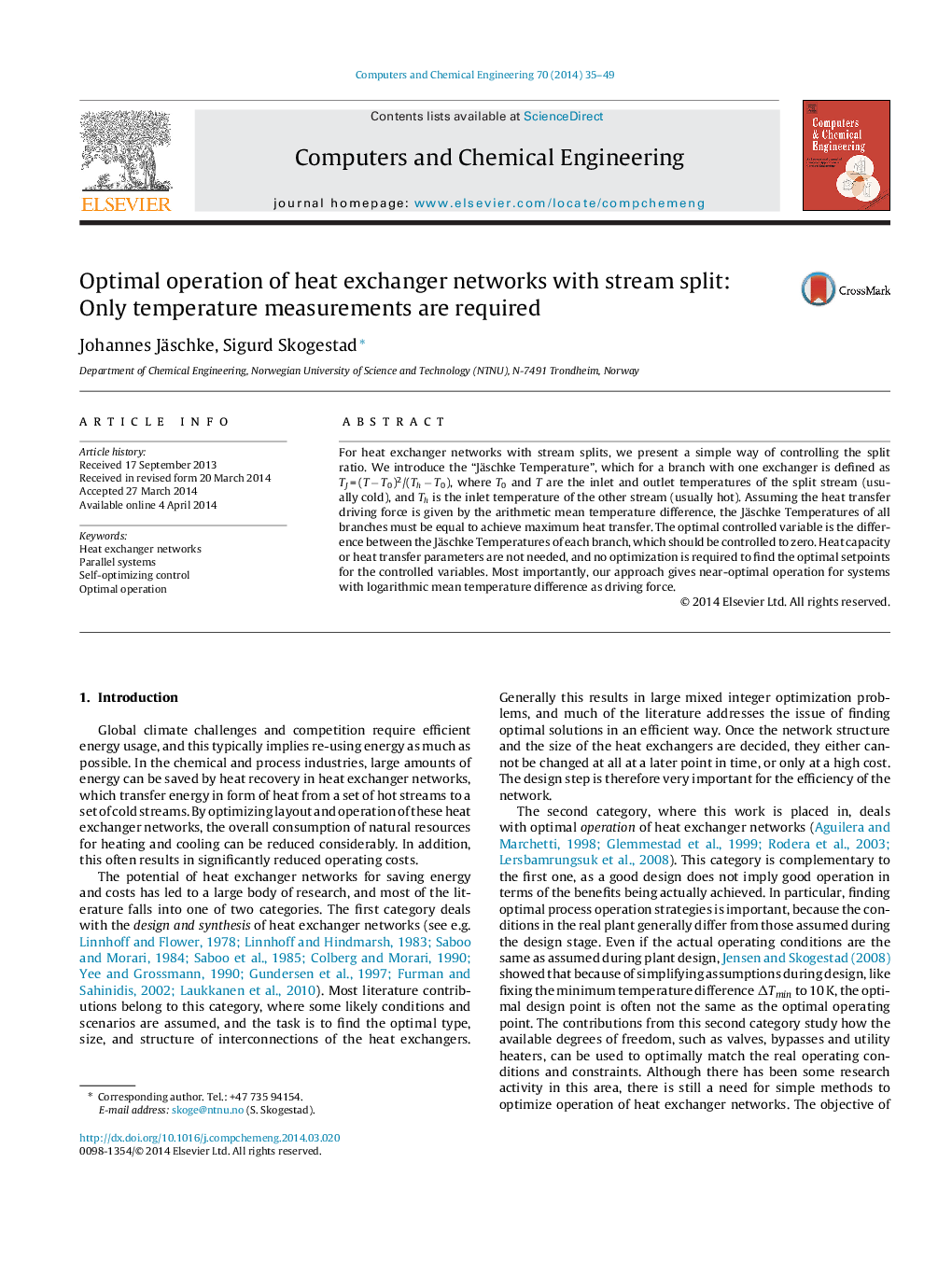| Article ID | Journal | Published Year | Pages | File Type |
|---|---|---|---|---|
| 172346 | Computers & Chemical Engineering | 2014 | 15 Pages |
•A new controlled variable for heat exchanger networks with stream splits is proposed.•We introduce the Jäschke Temperature for each branch of the split stream.•The Jäschke Temperatures are functions of temperature measurements only.•We propose to control the differences between Jäschke Temperatures to zero.•Split is adjusted near-optimally despite varying flows and heat transfer properties.
For heat exchanger networks with stream splits, we present a simple way of controlling the split ratio. We introduce the “Jäschke Temperature”, which for a branch with one exchanger is defined as TJ = (T − T0)2/(Th − T0), where T0 and T are the inlet and outlet temperatures of the split stream (usually cold), and Th is the inlet temperature of the other stream (usually hot). Assuming the heat transfer driving force is given by the arithmetic mean temperature difference, the Jäschke Temperatures of all branches must be equal to achieve maximum heat transfer. The optimal controlled variable is the difference between the Jäschke Temperatures of each branch, which should be controlled to zero. Heat capacity or heat transfer parameters are not needed, and no optimization is required to find the optimal setpoints for the controlled variables. Most importantly, our approach gives near-optimal operation for systems with logarithmic mean temperature difference as driving force.
